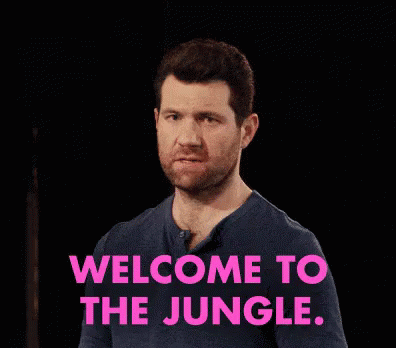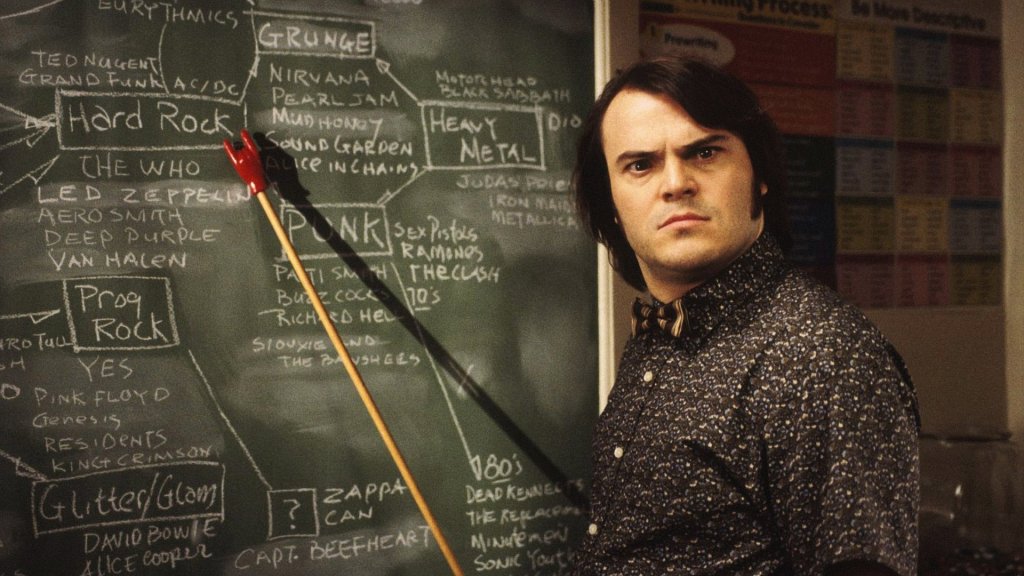If you’re a self-confessed music maven, then you’ve probably caught yourself day dreaming about a career in the biz at one point or another. Whether you see yourself selling out arenas, flipping switches in the studio or following your favourite band on tour a la Almost Famous, there are plenty of ways to make those reveries a reality.
But in the wise words of our lord and saviours AC/DC, it’s a long way to the top if you wanna rock n’ roll. It’s no secret that making it in the music industry is super competitive, so what do you need to do to ‘make it’? To pick up the tricks of the trade, we spoke to JMC Academy’s audio head lecturer and frontwoman of Sydney country trio The April Family, Kylie Whitney.
From the stage to behind the scenes, here are 9 tips to get started.
Prepare to do the hard yards
What’s the first ingredient, you ask? Undeniable talent? Nope. Impeccable music taste? Think again. When asked what’s the most important weapon to have in your arsenal to kill a career in music, an unshakeable work ethic is what topped Whitney’s list.
“I think time management and work ethic. I think being able to manage your time well and prioritise. I think that trips students up, not realising how much work is actually involved. It’s great work because it’s something you love doing so the work isn’t that hard because it’s your passion. But I guess prioritising the workload you have is important.”
Pick the right time to jump in
So, you’re ready to do the hard work. But how do you know if you’re better off confining your singing to the shower or pursuing it as your career?
“I think it’s when you can’t imagine yourself doing anything else. You can’t imagine being happy doing anything else. There are a lot of students who come to us from other careers and a lot of mature age students who take complete career changes and quit their jobs at the bank or whatever to pursue this. It’s just a passion that they have to do. It becomes something you have to do even more so than something you want to do.”
Let’s get it started
Before you commit to a career or degree in the music industry, there are plenty of ways you can sharpen your skills and explore different avenues when you’re getting started. Whitney says this is even truer in the digital age, where it’s easier to create and learn from home.
“There are a lot of platforms to get your music out there that were pretty restricted in the past when record companies controlled everything. I think that now, as an independent musician, you can manage all of that stuff yourself. You’ve got opportunities to get on playlists on Spotify and other streaming services. I think artists have a lot of control over their content and where it goes and how to manage it themselves and generate their own income from it.”
Know when to DIY versus training
YouTube tutorials and Google searches will get you so far, but there are some skills that you won’t pick up unless you’re in the hands of a professional. That’s right, it might be time to go back to school.
“There’s a lot of stuff you can DIY and you can do it quite well but there are some skills that you really need to be taught. I teach a lot of students doing audio engineering and if they come through teaching themselves how to use the equipment, they might’ve picked up some really bad habits along the way. You’ll also get access to resources that you might not necessarily have the money to go out and use. We’ve got state of the art studios there that the students are lucky enough to have access to.”
Don’t be afraid to explore new career paths
You might have your heart set on being the next Britney Spears, but Whitney also pressed the importance of leaving yourself open to new skills and career paths.
“I think you need to learn about all areas of the industry too. There might be avenues that open up that you didn’t know existed before you started. We find that some students come in thinking they want to take a particular career path and find themselves exposed to an industry that they didn’t know about,” she explained. “Being open to those other career directions is really important. Understanding the business side of it if you’re a musician, you need those skills to be successful as well.”
Meet your mentors
Whitney says that buddying up with a mentor is a great way to get guidance early in your career. You can learn from their mistakes, pick up their pearls of wisdom and get their help kicking down doors. Whitney says that if you’re studying, your lecturers can be a great resource and support network throughout your career.
“In my last year of study, one of my lecturers really took me under his wing and gave me the opportunity to intern in his recording studio. So I was his assistant engineer in my final year of study and then he gave me a job when I graduated. I’m still working at that studio. One of the great things that JMC does is that all of your lecturers are working in the industry and class sizes are quite small too, so you’ve got that very personal relationship with your lecturers. They become really good mentors in the industry for you.”
(Net)work it
It’s who you know, not what you know. As well as nailing the theory and honing your skills, Whitney says that studying music is also a great way to network with your peers and fellow musos.
“So there’s the academic side of it of course but more than that it’s the contacts that you make. Both professional contacts with the staff but also the contacts you make in your classroom and the opportunity to collaborate with your classmates. These are people that you’re going to be working with in the industry or you’re going to be in competition with. So if you’ve come through and you’ve got the same level of education, that puts you at an advantage.”

Get your hands dirty
Hitting the books and making connections is all well and good, but getting real-life experience early in your creative career is key.
“I think that you need to take the opportunities that are presented to you. We’ve got such good facilities. Students should be recording their demos and making use of the studio time and collaborating. I think one of the great things that JMC does is collaboration. You get the opportunity to work with all of the other departments. I think doing internships are also a great way to get more experience.”
Embrace the challenges of the industry
The space is constantly evolving and while naysayers might be convinced that the music industry is dead, there is still money to be made.
“I think that’s one of the misconceptions. That there is no money in it because of streaming. I think it opens up a lot of freedom to artists to be heard. Whereas in the past, all of that control was in the hands of the big guys. Technology has made it possible to make music in your bedroom and then distribute that to the world. I think that emerging artists really need to utilise that.”
There’s no doubt that the music business can be a whole lotta tough love, but Whitney says now is also the perfect time to challenge the industry and forge new paths.
“I tell my students all the time, if you’re frustrated about how industry is, you are the industry now. It’s your turn to make the industry whatever you want it to be. So I think having a bit of initiative and finding imaginative ways to make careers that may not even exist just yet in the industry.”
–
To learn more about studying at JMC, head here.












